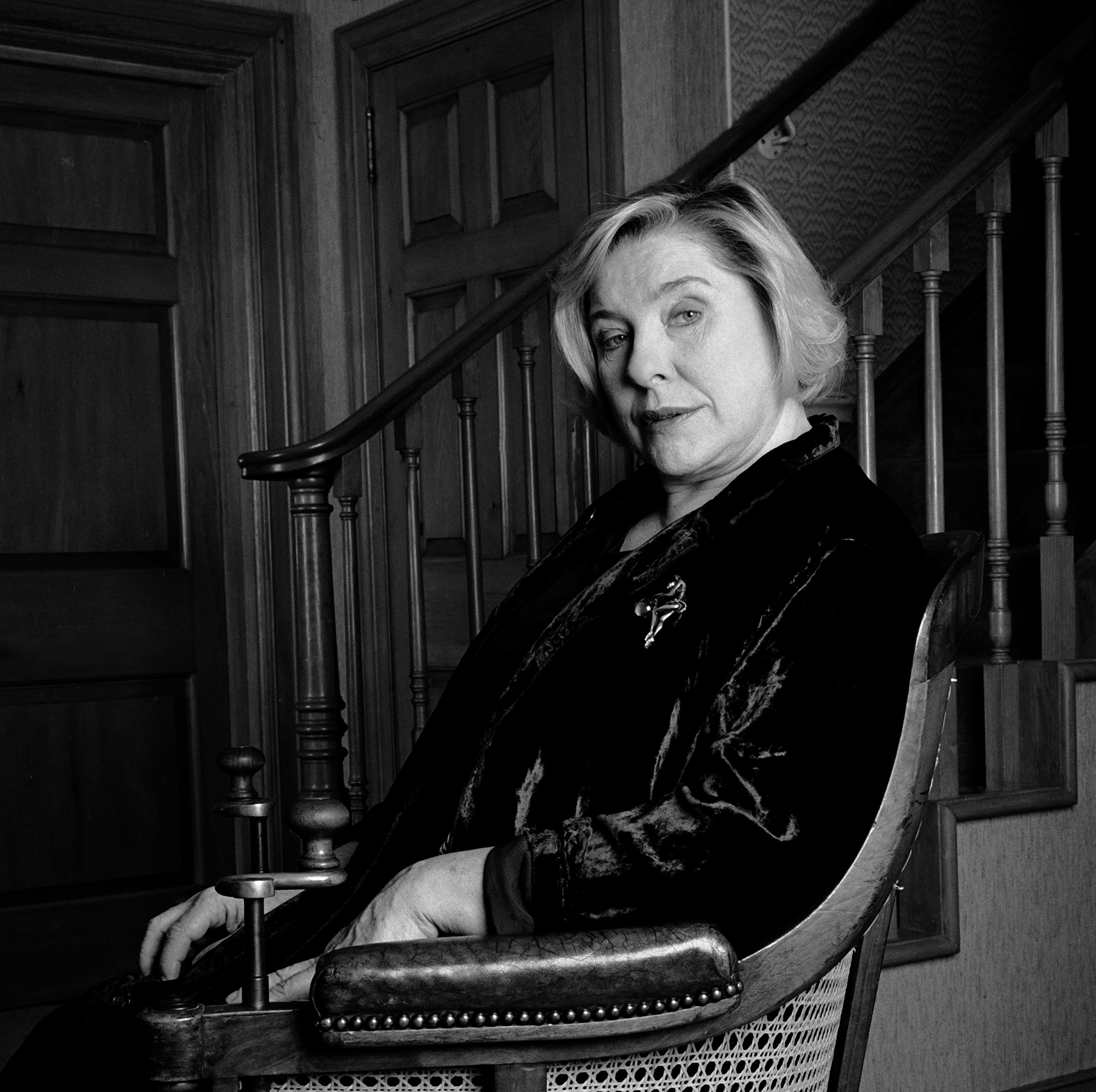Growing up, I was one of those kids who was just a little too obsessed with other people’s families. I would linger just a little too long during playdates, stay a little after breakfast at sleepovers, peer into friends’ cupboards. I wanted to know how real families worked. Their mechanics fascinated me. Siblings seemed like a strange adventure. From a very young age, I was a domestic tourist. I wanted to know how real people went about their daily lives, so perhaps Fay Weldon and I were always a perfect match, because she too was obsessed with domestic life.
Weldon, who died last week at the age of 91, wrote according to what The New York Times reported from her website, “34 novels, numerous TV dramas, several radio plays, five full-length stage plays, quite a few short ones, five collections of short stories.” She was most famous for her novel The Loves and Lives of a She-Devil, which was turned into the 1991 movie She-Devil starring Meryl Streep and Rosanne Barr. Weldon was also awarded a CBE, the highest-ranking order of the British Empire.
I can’t remember the first time I met Fay. My mother, Erica Jong (in her prime, in the 1970s) struggled to balance the demands of parenting with being a famous feminist writer. She was friends and frenemies with quite a few other feminist writers, many of whom I didn’t care for. But one of those women, Fay Weldon, I was obsessed with. Fay was warm and wicked in a way I always longed to be. Maybe I always knew Fay. Some family friends are like that. You can’t quite put your finger on when they started appearing in places, but once they did they were indelible, and it was impossible to imagine a time without them. Fay never lived in the United States, but my mother and I saw her frequently. Fay met my mom and dad in the 1970s during the brief time they were married to each other.
When I became a deeply unhappy teen, I realized I could just move into my mother’s friends’ houses. Of course, I had my own mother, but it wasn’t enough for me. Fay was the mother whose life revolved, at least in some measure, around her children. She was intensely interested in me in a way my own mother wasn’t. She would give me lists of books to read, things to do. I remember being deeply surprised at how interested she was in me. As an “overweight, plain” child, I wasn’t used to adults being interested in me.
The summer the Val Kilmer Batman movie came out, I showed up at that house overlooking London’s Hampstead Heath with a sad black duffle bag filled with enough clothes for a few days. I ended up staying longer. Fay’s house was one of those houses where a raucous family lived. She had four sons who filled the space with noise and life. I was always drawn to homes like that. I remember being delighted to find she didn’t have a daughter. I worked hard to endear myself to her son Sam, who was my age. As a teen who wasn’t particularly good with other teens or adults, I found this task to be somewhat herculean. Sam was very much a fourth son, and I was very much an only child who struggled with connection. He told everyone he wanted to be a postman when he grew up. You could never tell if anyone in the Weldon household was serious or not. I lost touch with Sam, and there is a dearth of information about him on the web, so I don’t know whether he did in fact become a postman.
I grew up surrounded by wicked feminist writers, but Fay was radically different from those women. The fabulous feminists I knew were constantly conflicted, running from place to place, desperate to have it all, worried that domestic life might undermine their careers. Fay never seemed conflicted about her life. Fay described herself as having “an easy disposition and a gregarious nature.” This was absolutely true and pretty unusual for a famous writer. But it was more than that, Fay was obsessed with the fate of “older” women, writing on her website “The sad truth is, my theory goes, that no-one is much interested in what happens to women after they turn 35. Which is the age at which I stopped Auto da Fay: the age I stopped living and started writing instead, as a serious person.”
She wrote books with heroines who were “overweight, plain women.” The famous writers I knew had beautiful, successful heroines with multiple handsome suitors who fulfilled fantasies of themselves—those famous authors didn’t necessarily fight for the overweight, plain women we all pretended not to be. Meanwhile, Fay wrote about ordinary women struggling to stay afloat. She wasn’t trying to date European aristocrats; she was too busy supporting herself, her kids, and her husbands. She was intensely practical about writing. She didn’t have time to be conflicted; she had a family to support. While my own mother was always slightly terrified of domestic life, Fay had none of that. Fay didn’t have time for the kind of self-indulgent bullshit the rest of us did. She’d be cooking a roast and typing a short story.




